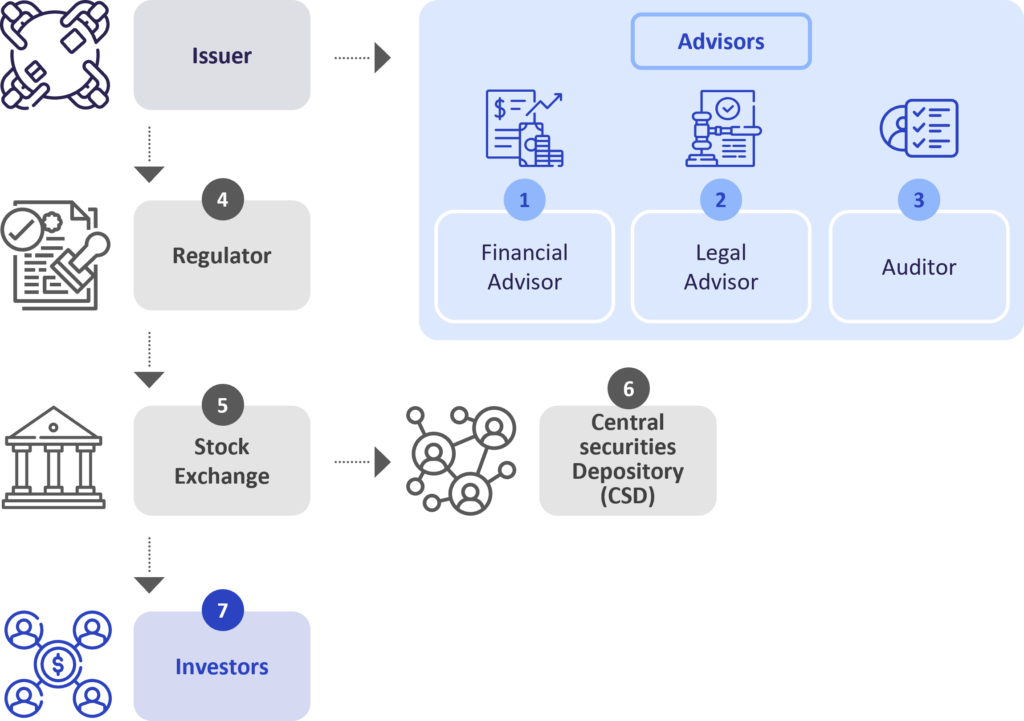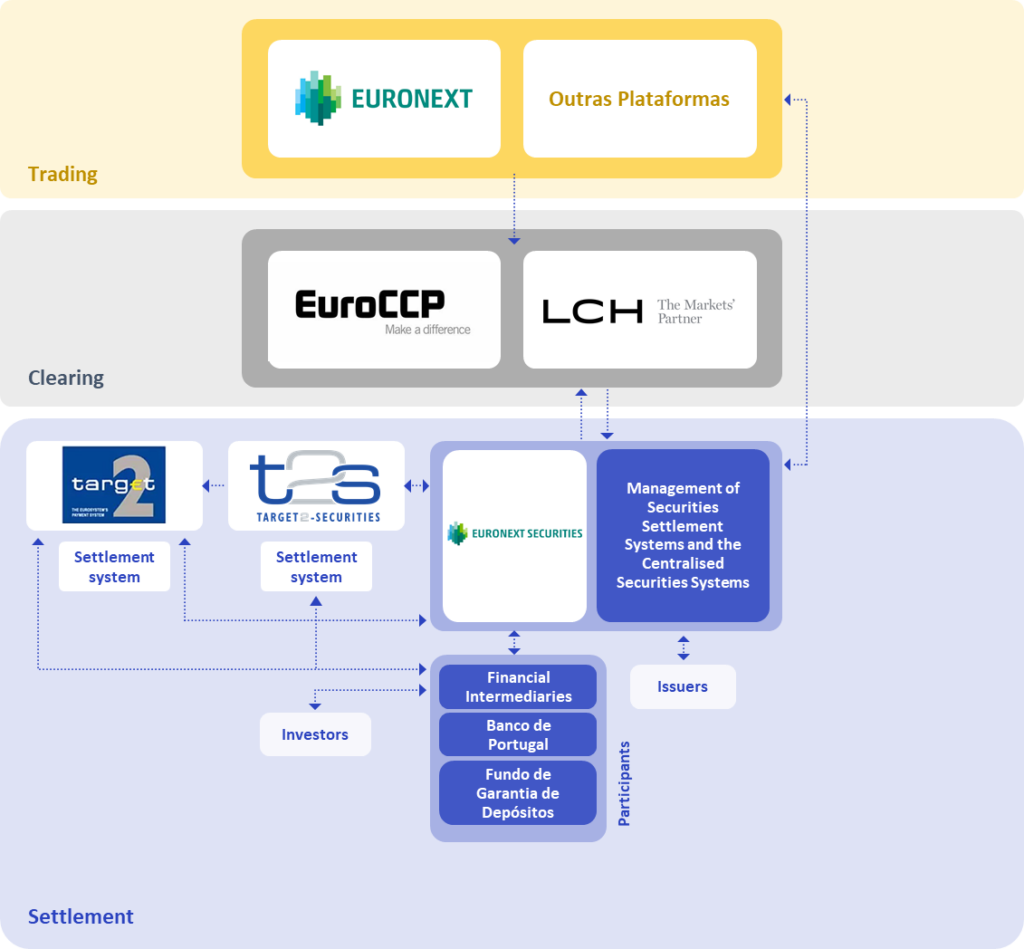Last updated:
1.2.1. Why choose public market-based financing?
Market-based financing refers to a system with multiple entities allowing the transaction of equity and debt financial instruments, in which such instruments supply (companies seeking financing) meets demand (investors, including funds, insurers, etc.) in an organized way.
Accessing market-based financing enables the Company to raise money from a wide investor pool. Additionally, accessing market-based financing has a positive impact on the conditions in which the Company can obtain further financing, including bank-based, as it provides a more solid standing with financial institutions, that may lead to low borrowing costs through less perceived risk. Furthermore, the diversification of investors (in debt) tends to decrease the cost of financing, due to the relative lower concentration in the counterparty’s risk. Presence in capital markets also grants the Company increased recognition, credibility and prestige as this decision is perceived as a Company´s commitment to more consistency, accuracy and safety, which in turn improve the Company’s ability to increase market share, reach new markets and attract and retain better talent.
Although the decision to access market-based financing should result from a diligent understanding about the steps of the process and best practices in dealing with investors, regulators, the media and public scrutiny, one of the first steps should be a deep reflection on the benefits that such process can unlock.
The potential benefits that are achievable by accessing market-based financing are:
1.2.2. Who are the market agents and key advisors for entering public capital markets?
Accessing market-based finance may require liaising with several parties and performing several steps. This procedure may be relatively simple or considerably more complex, depending on the size of the Company, its development stage in terms of organization and governance structures as well as the complexity of the envisaged offering for the funding of the market-based finance.
If you decide to obtain financing from a Private Equity firm, you may only need to involve Advisors (such as lawyers and financial advisors) to assist you through the process. Nonetheless, if you intend to enter in the public market-based-finance (through an IPO or a Bond Offering) you will also need to liaise with the Market Regulator and the Stock Exchange.
It is common to observe that companies progressively evolve through various stages of financing and complexity of carrying out operations, naturally depending on the financing needs of their projects and on their business ambition.
Bellow we describe a scenario of a public offering involving a large number of entities.

1.2.3. Secondary Markets
1.2.3.1. What are secondary markets?
The initial issuance of securities is known as the primary market. Afterwards, the securities can be bought and sold on secondary markets, either on stock Exchanges/Trading Venues or outside these.
1.2.3.2. How are securities traded in the secondary markets IN PORTUGAL?
Market Members
Only companies that have obtained “Membership status” granted by Euronext are allowed to participate directly in the trading activities on Euronext markets. Accordingly, investors cannot trade directly in the Exchange. They require a Member to execute orders on their behalf at the Euronext trading platform. The accredited intermediaries for Euronext Lisbon may be found in Members list | live (euronext.com).
Central Order Book and Trading Platform
Euronext operates an electronic Order Book in which orders entered are held until they are matched, expired or withdrawn. Specifically, Members introduce the buy and sell orders they receive from the investors in the Central Order Book. These orders can be of different types (market orders, limit orders, stop orders, indexed orders) and must comply a series of indications that are described in the Euronext Market Rules. Typically, an order should have an indication, at least, of the price preference, the volume/quantity and the term.
OTC trade (“Over The Counter”)
A trade that usually results from a bilateral agreement between a buyer and a seller with no interposition of a trading venue.
Method of trading
Shares are traded in the Euronext Trading Platform either continuously, for shares with sufficient liquidity or at auction for the least liquid shares. For many securities where there may not be a large number of buyers and sellers daily and at all times of the trading session, call auction trading is the most appropriate and efficient way to determine the price of these securities. Bonds trade at auction, but mainly OTC.
All orders on Euronext markets are centralised by the central order book in order to achieve an equilibrium price depending on the supply and demand for each security.
1.2.3.2. The trade and post-trade structure in Portugal


